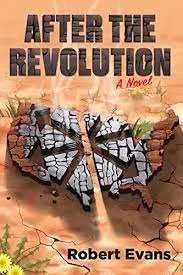Known for his charisma and charming writing, Varoufakis is one of the leading leftist figures arguing that our economic system has fundamentally transitioned so that its axis rotates not around capital, but cloud capital, thereby ushering in the age of technofeudalism. While the distinction between technofeudalism and capitalism may seem like technical minutiae to most folks--and likely is--for political strategists and organizers especially, it is critical to have clarity on who are enemies are and how to best combat them.
The term technofeudalism does a great job at singling out our greatest enemies of the moment--the tech oligarchs--and describing their vice-like grip on the economic system. Anushka would argue that the critique of technofeudalism make the bloody-thirsty capitalists of our day almost seem like poor victims of these new gangsters, and Varoufakis himself argues in the last pages of Technofeudalism that we would in fact need to create a broad base coalition including capitalists of many stripes to defeat the challenge technofeudalists pose. The risk here is that people forget that we need to dismantle capitalism in order to escape these hellish cycles of history. In “Critique of Technofeudalism” by Evgeny Morozov in New Left Review, the author outlines technofeudalists thinkers, including Varoufakis, but also including right-wing thinkers (Thiel and Yarvin). Morozov covers impressive ground outlining the differences between feudalism and capitalism and ultimately arrives at the conclusion that as ugly as this phase of capitalism is, it doesn’t merit another term because companies like Google and Facebook earn money through much more than just “rents.”
As a non-economist, I have few horses in this fight. Reading Varoufakis, however, did clarify for me some of the basics of global economics and the challenges tech oligarchs pose, and he did so in really captivating and easy-to-parse prose. Because of this, I highly recommend his book. Morozov may be more correct, but he was way more academic and drier. Ultimately, I think most of us just need to understand the grip these bastards have on the globe better and Varoufakis can help you get there quicker. As the US continues to undergo a technical coup and flagrant Nazism spearheaded by tech oligarchs who subscribe to right-wing technofeudal theory, Varoufakis focus seems more and more necessary, although I admit I’m unsure if he is technically correct--I simply am not an economist.
Wednesday February 26th, Robert Evans published a summary of a warning Democratic insiders are sharing among themselves about the dangers of Curtis Yarvin, Elon Musk, and “Neo-Reactionaries.” The letter outlines what could be called a technofeudal plan to dismantle the United States. Technofeudalist might ultimately still be capitalists, but I think the term is worth retaining for understanding how they view themselves within the capitalist landscape. For me, the dramatic speed of technological evolution--we’re literally in a world with killer robots and AI-boyfriends--justifies a terminology that distinguishes this phase of capitalism from the last. 4 out 5.




